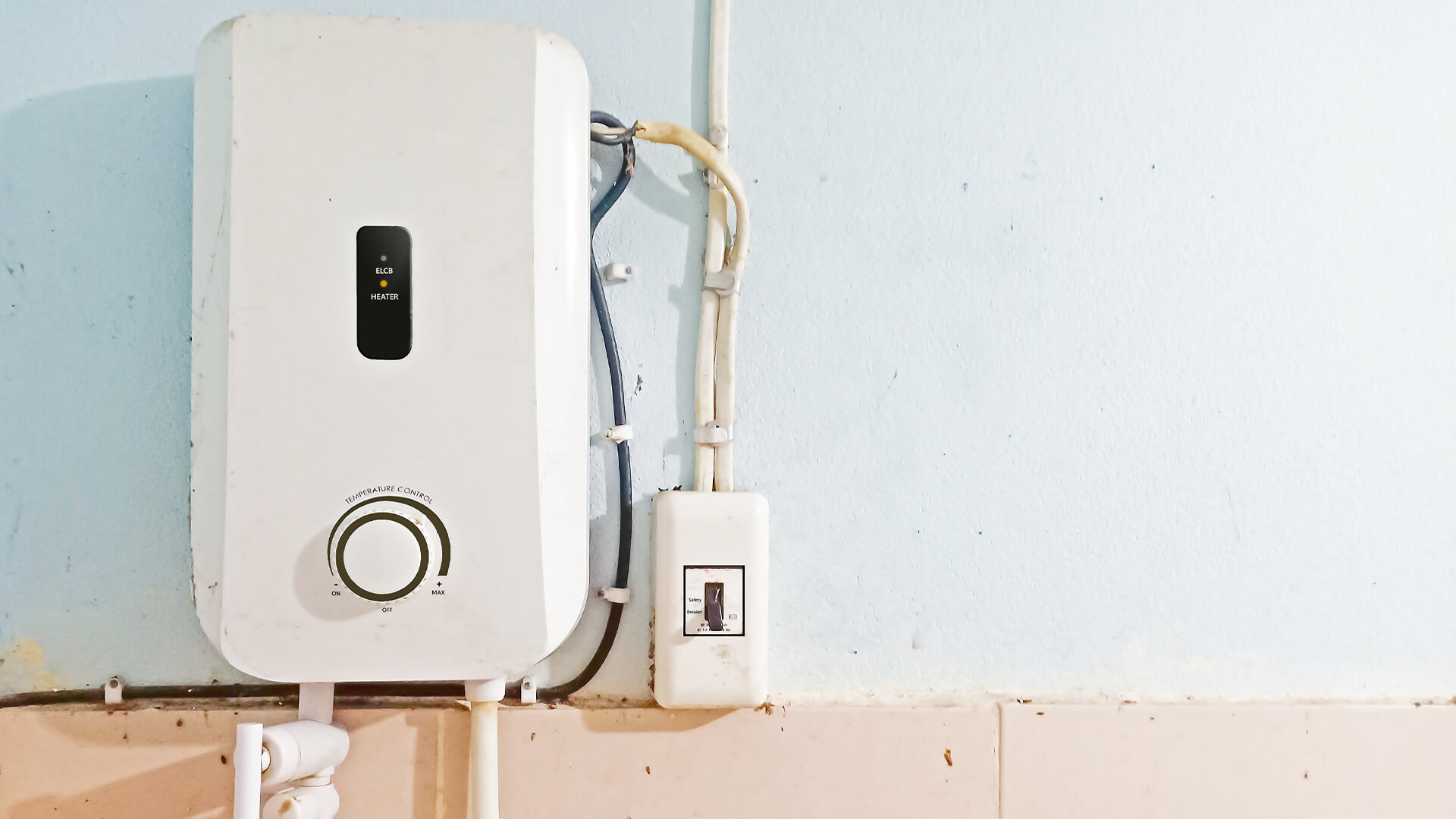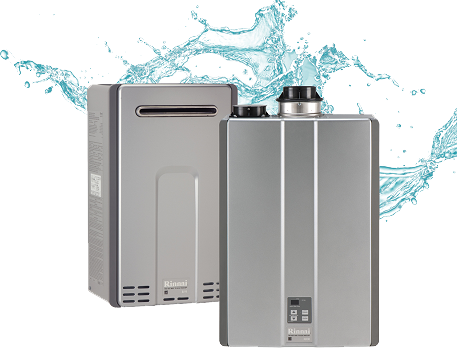Notable Upsides Of Embracing Tankless Water Heaters
Notable Upsides Of Embracing Tankless Water Heaters
Blog Article
Are you currently trying to find guidance on Six Benefits of a Tankless Hot Water Heater?

In a world where ease and efficiency reign supreme, it's no surprise that home owners are continuously looking for smarter methods to manage their home's power consumption and convenience. One innovation that has gradually acquired popularity is the tankless hot water heater. But what exactly makes these systems stand apart from the traditional tank-based models most of us matured with? Let's dive in and explore the advantages of tankless water heaters, aiding you make a decision if it's time to make the switch in your home.
Intro
Picture this: you step into the shower after a lengthy day, expecting a comforting cascade of warm water, only to be greeted by icy beads since the last individual used everything up. Sound acquainted? Traditional water heaters save a fixed amount of warm water, implying you go to the grace of that tank's supply. Tankless systems, on the other hand, warm water as needed. Say goodbye to running out mid-shower, say goodbye to fumbling with schedules just to guarantee hot water is available.
Recognizing Tankless Water Heaters
What Are Tankless Hot Water Heater?
Tankless hot water heater, in some cases called on-demand or instant water heaters, give warm water only as it's needed. As opposed to saving gallons of pre-heated water, these units kick into activity the minute you turn on the tap. Water goes through a warm exchanger, warming up in real-time, suggesting you obtain a continuous flow of hot water without the need for a large storage tank sitting idly by.
How Do They Differ from Traditional Equipments?
Conventional heaters hold a reservoir of hot water, making use of power to keep that container at a regular temperature. Tankless units remove the standing supply, cutting down on squandered energy and the cumbersome footprint of a huge cyndrical tube. Basically, you're upgrading from a "accumulation" frame of mind to a "made-to-order" strategy.
Common Types of Tankless Systems
Tankless hot water heater usually can be found in 2 varieties: gas and electric. Gas models tend to supply higher flow rates, ideal for larger homes, while electric designs usually serve smaller homes and are usually much easier to set up. Additionally, some systems are designed for point-of-use (offering one fixture) while others can handle the whole home's hot water needs.
Key Advantages of Tankless Water Heaters
Energy Effectiveness and Price Savings
Say goodbye to heating up a titan tank's well worth of water and maintaining it warm all the time. Tankless heaters minimize standby energy losses, which can reduce energy costs. While the initial expense may be greater, the lasting savings usually justify the investment.
3. Space-Saving Layout
If your home is short on storage space, getting rid of the bulky tank frees up important space. Tankless devices are portable and can often be placed on wall surfaces, tucked away in edges, or mounted in limited utility wardrobes without having all to oneself the whole space.
4. Longer Life-span
A properly maintained tankless water heater can outlast its tank-based relative. Standard tanks might last 10-15 years, while tankless models can maintain chugging along for 20 years or more, making them a solid financial investment over time.
1. Limitless Hot Water Supply
Ever before had to set up showers so everyone obtains their fair share of warm water? With tankless, that ends up being a distant memory. As long as the heating unit's circulation capacity isn't surpassed, you can take back-to-back showers without developing into a popsicle.
5. Improved Water Quality
Keeping water in a container can in some cases cause debris build-up or a somewhat "off" taste. With tankless systems, fresh water is heated up right away, reducing the chances of sediment accumulation and possibly using cleaner-tasting water.
Factors to consider Prior To Switching
Though the advantages are compelling, it's smart to think about a few factors prior to totally dedicating.
Assessing Your Home's Water Usage Patterns
If your home concurrently makes use of numerous fixtures with high warm water demand, make sure the device's circulation price fulfills your needs. Understanding your usage patterns helps you select the ideal size and sort of tankless heating system.
Upkeep and Care Tips
Tankless systems are relatively reduced maintenance, but they aren't set-it-and-forget-it appliances.
Normal Cleaning and Descaling
Tough water minerals can develop in the heat exchanger, influencing effectiveness. Regular descaling (frequently advised each year) keeps the device running at peak performance.
Yearly Professional Assessments
A yearly checkup from a professional guarantees small issues are caught early. They'll examine the device's performance, look for leaks, and assist keep optimal efficiency.
Preliminary Investment Costs
Tankless heaters commonly include a higher upfront price. In between the unit itself and prospective setup modifications, the preliminary expense may offer you sticker label shock. However bear in mind to view it as a long-term investment.
Installment Needs
Depending on your home's framework, you may require extra electrical capability or gas line upgrades. Ensure you comprehend the installation needs and consult with a professional to avoid shocks.
Guaranteeing Proper Air Flow
For gas designs, proper ventilation is essential to securely expel exhaust gases. Make certain airing vent systems are tidy and appropriately installed to stop any type of possible security dangers.
Contrasting Different Brands and Versions
Not all tankless water heaters are developed equal.
Investigating Reputable Makers
Seek reputable brands with a history of generating top quality systems. A reliable supplier typically gives far better client assistance and longer warranties.
Installment: DIY or Professional?
While some house owners delight in tackling jobs themselves, tankless setup could not be the most effective time to burst out the toolbox.
Pros and Cons of Do It Yourself Setup
A do it yourself install could save cash, however it includes threats. Wrong setup can lead to inefficiency or safety and security problems. If you come in handy and have experience, it might be practical-- yet proceed with care.
Reading Testimonials and User Feedback
User reviews and feedback from next-door neighbors or close friends that have actually gone tankless can use beneficial understandings. Occasionally, real-life experiences can be a lot more telling than advertising sales brochures.
When to Call a Specialist Plumbing Technician
For a lot of, calling a professional ensures everything's done properly. A specialist plumbing understands neighborhood codes, sizing needs, and airing vent specifications, reducing the threat of incidents.
Optimizing Performance
You have actually bought a tankless device-- currently maximize its performance.
Optimum Temperature Level Setups
Many people establish their units in between 120-140 F. Changing the temperature level can improve convenience and savings. Experiment to locate a pleasant place that doesn't throw away energy.
Coupling With Low-Flow Fixtures
Wish to extend your unit's capacities? Consider installing low-flow showerheads and taps. They decrease water use, enabling your tankless system to provide a stable stream of warm water without stressing.
Environmental Effect
Tankless water heaters line up with greener living objectives.
Decreased Carbon Impact
By utilizing less energy and only heating water as needed, tankless systems can decrease your home's carbon footprint, decreasing your environmental impact.
Conserving Natural Resources
Less energy consumption and less lost warm water equate right into fewer natural resources being utilized, an environmental win-win.
That Benefits Most from Tankless Heating systems?
The charm of tankless heating systems is that they can suit a range of households.
Big Families vs. Solitary Owners
Big family members may love the endless warm water supply, while solitary residents value the energy savings from not warming an entire storage tank for just a single person's morning shower.
Homeowners with Limited Space
If your home is short on square video footage, shedding the bulky tank maximizes area for other essentials-- or possibly simply much more breathing space.
Eco-Conscious Customers
Going tankless aligns with eco-friendly values, guaranteeing you're not throwing away energy or sources.
Future Fads in Tankless Hot Water Heater
The world of home appliances is ever-evolving, and tankless water heaters are no exemption.
Advancements in Technology
R&D is regularly enhancing warmth exchangers, making units a lot more reliable and resilient. Future models might be also quieter, much more portable, and better fit for varying climates.
Smart Home Assimilation
Think of readjusting your water heater's temperature by means of an app or getting maintenance signals on your phone. As clever home tech developments, we'll see more connectivity and benefit.
Final thought
Selecting a tankless hot water heater is greater than simply updating your home's warm water system; it's buying long-term comfort, power effectiveness, and a greener way of life. By considering your house's water usage, being mindful of installation requirements, and committing to normal upkeep, you can take pleasure in a consistent stream of hot water without the luggage of a bulky storage tank. As technology advances, you can eagerly anticipate even smarter, extra efficient tankless remedies that not only make your life less complicated however also profit the planet.
Six Benefits of a Tankless Hot Water Heater
Continuous hot water. Large families know what a pain it is to hop into the shower and get blasted with cold water. With a tankless hot water heater, this doesn't happen as long as you install the right size tank. Even if you don t have a large family, a tankless hot water heater allows you to use multiple appliances at once without running out of hot water. Reduced energy bill. Because tankless heaters are essentially "off" when the water tap is not on, they use less energy overall. In fact, an ENERGY STAR-qualified tankless hot water heater can use 25-40% less energy than a conventional water heater, and save the average family $100 or more annually. Longer life. Get more bang for your buck with a greater lifespan. Specifically, conventional hot water heaters last about 10-13 years compared with up to 20 years for a tankless hot water heater. Less space. Did you know that tankless hot water heaters can be hung on a wall almost anywhere in your home? Plus, at 28" tall by 20" wide and 10" deep, a tankless hot water heater takes up a lot less space than a conventional hot water heater, which is 60" tall and 24" wide. Good for the environment. In addition to reducing the amount of energy used, most propane-fired tankless water heaters are made of recycled materials. Many conventional tanks, on the other hand, go directly to the dump once they've served their purpose. High safety ratings. Conventional water heaters are "always on" and thus pose safety risks more often than do tankless heaters, which only operate when warm water is needed. https://www.rotorooter.com/blog/water-heaters/six-benefits-of-a-tankless-hot-water-heater/

I stumbled upon that write up about 5 Benefits of Tankless Water Heaters while doing a lookup on the web. Remember to take the time to promote this blog post if you enjoyed reading it. Thanks a bunch for being here. Revisit us soon.
Free Estimates Report this page